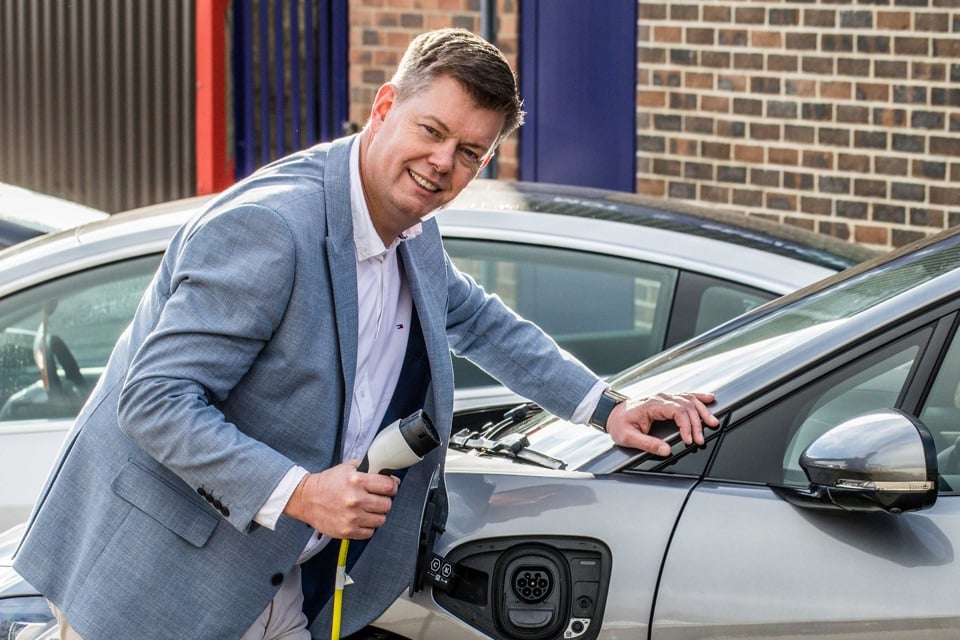The Government’s announcement of relaxed electric vehicle (EV) manufacturing rules and a £2.3 billion package of tax breaks for the auto industry in response to the crippling 25% tariffs imposed by the United States is a welcome start. But it is just that - a start, writes Fraser Brown, managing director of MotorVise.
While I broadly welcome the direction of travel, we need more clarity, more urgency, and above all, a more consumer-focused approach to boost the transition to electric vehicles if we are to avoid long-term damage to one of the UK’s most valuable industries.
The Government's shift to ease the Zero Emission Vehicle (ZEV) mandate and maintain more flexible targets - including that cleaner and efficient petrol cars sold before 2030 will count towards the ZEV - reflects a refreshing pragmatism in the face of geopolitical shockwaves. Sir Keir Starmer is right to acknowledge that “global trade is being transformed.” However, transformation without a coordinated and comprehensive strategy risks leaving the UK car industry stuck in neutral.
Strings attached
The £2.3 billion in tax breaks sounds promising on the surface. But without specific detail on how these funds will be distributed, what strings are attached, or how they can be accessed by different players across the car industry this figure is little more than a headline. The industry needs targeted investment, and we need to see a roadmap now, not six months down the line.
For manufacturers like Jaguar Land Rover, who have already taken the extraordinary step of pausing shipments to the US, this isn’t just a strategic pivot, it’s an economic imperative. You simply cannot continue building and storing thousands of vehicles indefinitely. This kind of pressure is unsustainable, particularly when so much of our automotive sector relies on exports.
The statistics paint a stark picture: According to SMMT in 2024 the automotive industry is a vital part of the UK economy and is integral to supporting the agendas for both growth and net zero. Automotive-related manufacturing contributes £93 billion turnover and £22 billion value added to the UK economy and typically invest around £4 billion each year in research and development.
Around 152,000 people are directly employed in manufacturing, with countless more working in sales, aftercare, and retail. Those jobs cannot hang in limbo while the government takes a “wait and see” approach to negotiations.
Blockade, not a bump
We urgently need the Government to initiate trade talks with the United States. The current 25% tariff is not just a bump in the road but a blockade. If we are serious about protecting jobs, maintaining export momentum, and securing the future of UK car making, this must be addressed immediately.
A coherent foreign trade strategy that supports British automotive exports should be at the top of the Prime Minister’s agenda. But equally concerning is the lack of focus on the demand side of the EV equation. It’s all well and good easing rules for manufacturers, but where is the incentive for British consumers to make the switch to electric?
We know the uptake of EVs has been sluggish in recent months, largely due to affordability, uncertainty over charging infrastructure, and mixed messages from successive governments. Without robust consumer incentives — grants, scrappage schemes, and tax relief on EV purchases — any progress on the supply side will be undermined. The public needs a clear reason to buy, and right now, many simply don’t see one.
The decision to push the ban on hybrid and plug-in hybrid vehicles from 2030 to 2035 gives manufacturers some relief. But this must not become an excuse for delay. If we are to meet climate targets, hit manufacturing goals, and protect our industrial base, every lever must be pulled and urgently.
While I support Sir Keir’s ambition for “bold changes,” this must be matched with detail and delivery. We have a world-class automotive sector, filled with talent, innovation, and history. Let’s not squander it through short-term fixes or political posturing.
Now is the time for a cohesive strategy that combines trade diplomacy, targeted industry support, and meaningful consumer incentives. Only then can we truly safeguard the future of British automotive manufacturing and lead the electric transition on both the domestic and global stage.
Fraser Brown is chief executive of automotive consultancy MotorVise

















Login to comment
Comments
No comments have been made yet.